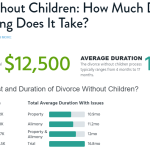Attorneys provide support throughout all stages of divorce proceedings. To find one who best meets your needs, consider seeking advice from family and friends for referrals.
An attorney can provide accurate legal advice as you negotiate toward a fair settlement and can also represent your rights in court proceedings. Unfortunately, they cannot represent both you and your spouse at once as doing so would violate attorney-client privilege.
Document Preparation
Family law documents can be complex and involve filling in numerous details with unfamiliar terminology and legalese. Any mistake or oversight could potentially delay proceedings and bring unfavorable outcomes; thus, it’s essential that these forms are completed accurately.
Lawyers or their document assistants can help streamline this paperwork-filled process for greater efficiency, eliminating much of the frustration and confusion often encountered when trying to complete forms on one’s own. Furthermore, these professionals offer guidance and advice based on personal circumstances – something not always provided when using legal document preparers – making this an important option for those without enough budget to afford full representation.
Court Representation
Divorce lawyers can be invaluable resources in helping navigate the court process and present your case before the judge. Furthermore, they may represent you during alternative dispute resolution methods like mediation and arbitration.
Attorney-client privilege protects confidential communications between you and your attorney, such as verbal dialogues, written correspondence or electronic messages. For effective representation to occur, it’s essential that all details be shared openly – withholding information may lead them to create strategies which fail to fully meet your needs.
Admonition to Jury: Instructions given by a judge to inform a jury as to what evidence can and cannot be admitted into their case, also known as charging them with it. Abandonment: Abandonment occurs in Family Court when one parent ceases being involved with their child for an extended period, or Housing cases when tenants vacate without providing notice, known as constructive abandonment.





